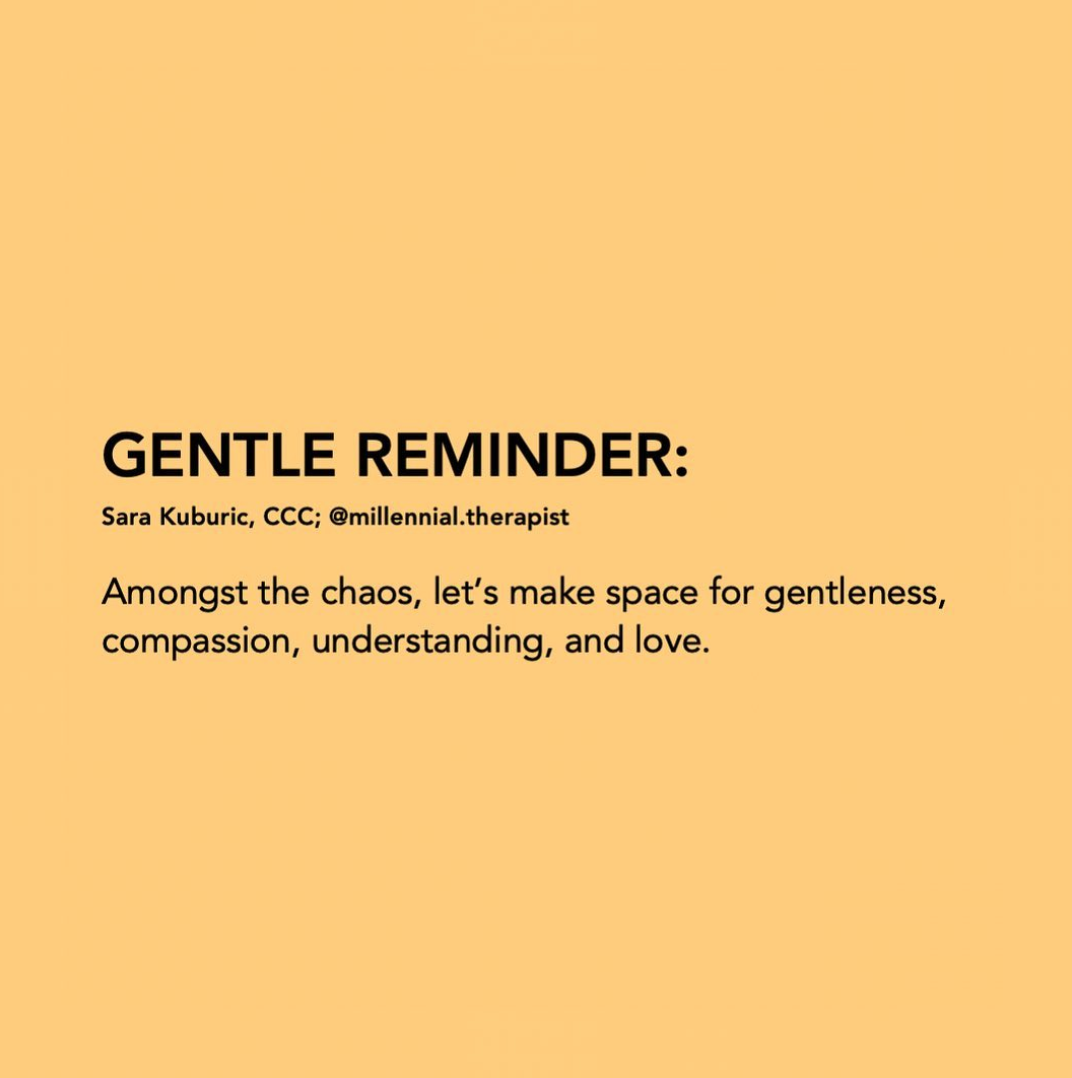
Your pre-lockdown mental health still matters
We spoke to existential therapist, writer and life-coach Sara Kuburic a.k.a @millennial.therapist about how a little validation goes a long way.
Sara Kuburic shares her expertise as an existential therapist, writer and life-coach to her 376,000+ Instagram followers under the moniker @millennial.therapist. Sara works entirely online, a position that’s allowed her to continue her work as normal, and that has minimised the personal repercussions of the coronavirus lockdown as a self-described introvert. It’s a sign of the times that we’re currently living in a world where it’s more convenient to access therapy than it is to shop for groceries—albeit both equally as vital to our wellbeing as she goes on to explain.
She describes how although it’s commonly felt that we’re missing our lack of structure and meaning, it’s important to notice your own emotions—not just the collective mood of the entire world. If you’re feeling numb, demotivated and withdrawn, these could be symptoms of anxiety and depression and so it would be worth contacting your GP. A depressed instinct is to isolate so it can be difficult to acknowledge changes in patterns of behaviour while we’re less mobile. Sara emphasizes preserving connection as much as you can and having a support system to alleviate symptoms of low mood.
While many of us are unable to have face-to-face interactions, Sara advises us to be aware of social media usage: “There’s sharing and there’s oversharing. There has to be a balance if we’re seeking for others to regulate and soothe us. Oversharing doesn’t have boundaries; we’re externally looking for regulation. On the flip side, demonstrating a lack of awareness is avoidance behaviour. It’s important to remember that you can feel compassion and self-satisfaction at the same time. You can hold the ‘and’. It’s okay to have both.”
 A post from Sara’s Instagram
A post from Sara’s Instagram
Treating this period of change can be reframed to shift our mood state according to Sara: “What value you place on this time will define it. Is the lack of structure taking away agency or giving it back to you? We can restructure the norm, find our own values and meanings, set intentions, find new goals, give back to humanity… our attitude towards this time will define it.”
So while we wait for the next lockdown update, how do we keep our stress in check, especially when emotional awareness doesn’t come as naturally to some as it does to others? “Paying attention to physiology can give good indicators,” Sara says. “Stomach pains, headaches and muscle tension can be symptoms that you’ve passed your body’s stress threshold and these can manifest into chronic stress that becomes demotivating.” While anxiety and stress might be new feelings to some that are only recognised through physical symptoms, for those with existing mental health conditions, it’s important that they are heard too: “We need to acknowledge that it is harder for some people,” says Sara. “Validate that it might be harder on them, because it is.”
 A post from Sara’s Instagram
A post from Sara’s Instagram
She offers some practical ways that we can manage mood ourselves through identifying stressors and taking action to break the cycle: “As stress is stored in the body, it can be released through the body too. Assess your boundaries: if you need to take a one hour break, or 15 minute break, or end your day at 5pm, take steps to implement that. What we need to remember is that we’re not experiencing a normal circumstance so you might not be able to accomplish what you have in the past—it can be impossible. Give yourself grace. Expectations cause stress, so change your expectations and you can decrease your stress and improve your mood.”
And Sara’s parting advice? “Don’t forget the basics—eating, hydration, sleep. You can release stress by journaling for example, but it’s redundant unless you cover the basics first.”
A study found that multivitamins caused ‘a significant reduction in the overall score on a depression anxiety and stress scale and an improvement in alertness and general daily functioning’. We created MOOD to supplement the basic foundations containing essential vitamins to aid the metabolism of our natural mood stabilizing hormones.


